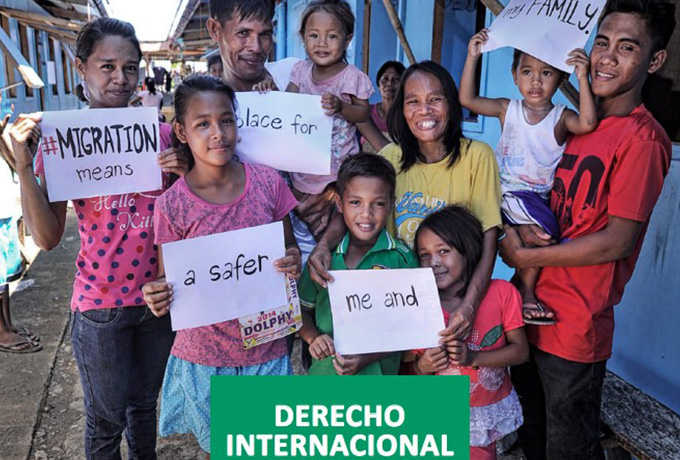Multiculturalism:
A model of integration policies that welcomes the preservation, expression and sometimes even the celebration of cultural diversity. This approach encourages migrants to become full members of society while retaining their cultural identities. It combines the recognition of varied backgrounds, traditions and ways of seeing the world with certain universalist values, such as the rule of law or gender equality, that override cultural differences and guarantee the same rights for all. The integration relationship is then best captured in the image of a mosaic, enabling minority ethnic groupings to live side by side with the majority constituency.
Migration governance:
The combined frameworks of legal norms, laws and regulations, policies and traditions as well as organizational structures (sub-national, national, regional and international) and the relevant processes that shape and regulate States’ approaches with regard to migration in all its forms, addressing rights and responsibilities and promoting international cooperation.
Migration:
The movement of persons away from their place of usual residence, either across an international border or within a State.
Migrant worker:
A person who is to be engaged, is engaged or has been engaged in a remunerated activity in a State of which he or she is not a national.
Migrants in vulnerable situations:
Migrants who due to the circumstances are unable to effectively enjoy their human rights, are at increased risk of violations and abuse and who, accordingly, are entitled to call on a duty bearer’s heightened duty of care.
Migrant:
An umbrella term, not defined under international law, reflecting the common lay understanding of a person who moves away from his or her place of usual residence, whether within a country or across an international border, temporarily or permanently, and for a variety of reasons. The term includes several well-defined legal categories of people, such as migrant workers; persons whose particular types of movements are legally defined, such as smuggled migrants; as well as those whose status or means of movement are not specifically defined under international law, such as international students.
Labour migration:
Movement of persons from one State to another, or within their own country of residence, for the purpose of employment.
Irregular migration:
Movement of persons that takes place outside the laws, regulations, or international agreements governing the entry into or exit from the State of origin, transit or destination.
Return migration:
In the context of international migration, the movement of persons returning to their country of origin after having moved away from their place of habitual residence and crossed an international border.



